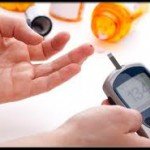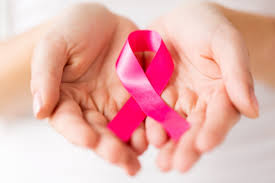The link between diabetes and heightened risk of some cancers is under research. In addition to this a major issue at hand with the patients and physicians is care of cancer patients who have preexisting diabetes. It is critical in patients receiving treatment for cancer to aggressively manage and regulate their blood sugar levels.
Without going into the vulnerability of cancer patients to be diagnosed  with diabetes and vice versa, let us accept that these can co-occur. It is important to co-manage both medical conditions and not ignore one at the cost of the other. Patients with cancer need to control their diabetes for better outcomes on both fronts.
with diabetes and vice versa, let us accept that these can co-occur. It is important to co-manage both medical conditions and not ignore one at the cost of the other. Patients with cancer need to control their diabetes for better outcomes on both fronts.
Cancer and treatment for cancer brings about metabolic changes in the body that can cause diabetes or worsen in case it is pre-existing. Diabetes can also appear a few years after treatment for cancer. Radiation therapy, steroids and certain certain chemotherapeutic drugs can be considered responsible for diabetes or aggravated diabetes in cancer patients. It is best to discuss the desired sugar levels with your treating doctor.
Risk Factors for Diabetes
Before proceeding further let us look at some of the risk factors for diabetes:
- Obesity
- Family history with one or more than one family member suffering from diabetes
- Certain races like African-Americans, Asian Americans and Hispanics are known to be more prone to developing diabetes
- Smoking or tobacco use
- Excessive stress levels and
- Gestational diabetes, which may be observed in some pregnant women
What to do?
If you are receiving treatment for cancer and are a high risk patient for diabetes, it is best to be
- Monitor blood sugar levels

- Indulge physical activity as much as possible
- Avoid overeating
- Educate yourself on your risk
Why the Hype?
The concerns for maintaining blood sugar levels are not unfounded. Maintaining blood sugar levels is known to result in positive outcomes and prevent infection. Not being able to control blood sugar levels can lead to multiple complications. some of them being:
- Delay in cancer treatment
- Loss of muscle and weight
- Fatigue
- Slower healing
Some Tips
Effective management of diabetes during treatment may sound too much of work but with a little bit of intelligence and smart work achieving positive results should not be difficult. Be aware and feel in control of your diabetes. Some tips that can prove helpful are:
- Discuss your diabetic condition with your treating physician
- Discuss your blood sugar levels with your treating physician
- Have plans ready for sick days, days in hospital
- Monitor blood sugar levels
- Wear a diabetes identification jewelry for emergency situations.
Managing Nausea
Nausea is a common side effect in many cancer patients. This can prove tricky in case of diabetic patients. If complaining of nausea:
- Eat frequent and small meals
- Wear loose clothes
- Wait for 30 minutes after meal before lying down
- Sip liquids throughout the day
- Avoid foods that are high on fat content, are spicy and have very strong odours
- Avoid in taking a fluid while taking a meal
- Balance your intake of carbohydrates and proteins.
References:
University of Texas MD Anderson Cancer Center Publications
American Cancer Society Website








